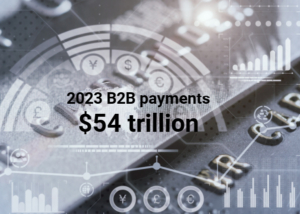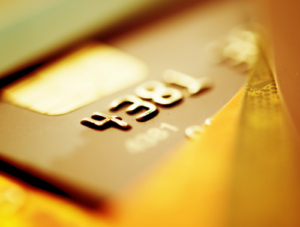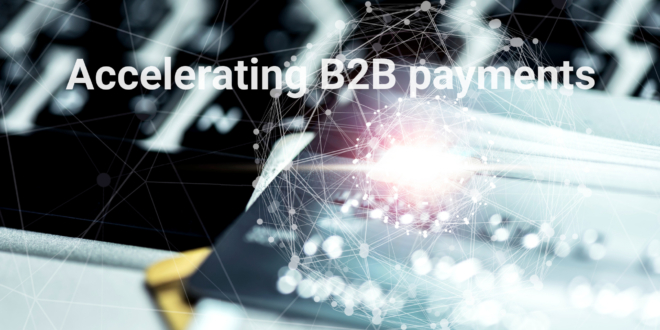By Bob Kaufman, CEO, ConnexPay

With PayPal and Venmo offering instant payments for customers, C2B payments technology proves itself to be a leader in global innovation and growth. Meanwhile, the technology of B2B payments continues to lag. The security, reconciliation, and compliance aspects of B2B payments mean that payments can take weeks or months to be processed, meaning that one late payment can affect entire supply chains.
While exceeding their average expected terms of 27 days to 34 days, 93% of companies experience late payments, according to research. Moreover, the lack of ready capital due to late payments may cause some businesses facing financial pressures to fail, so the fact that merchants are writing off 1.5% of their receivables is concerning. That extra 1.5% could have been used for reinvesting or to keep moving the business forward.
This is why some of the slow growth in developed economies can be due to an increased number of late payments, as well as supply chain problems, labor issues, the ongoing fallout of the COVID-19 pandemic and spiraling inflation. Paying on time is crucial for putting businesses and the wider economy in the right direction for recovery.
Emergence of C2B payments in the B2B market

The B2B payments market was worth $49 trillion in 2021 and is expected to be worth $54 trillion in 2023. While 10% growth may seem promising, the research indicates businesses are still facing a slow recovery following the impact of the COVID-19 pandemic.
Conversely, C2B payment methods such as Buy Now Pay Later (BNPL) and virtual cards boost business innovation. Real-time payments have been a standard in C2B and C2C payments for over a decade. So how can popular C2B technologies influence change and operate in a B2B environment?
Lack of cashflow can pose significant challenges

Cashflow is crucial for any business, but the systems that manage it aren’t built to optimize it adequately. Acquirers are entitled to hold funds for multiple days before releasing them (sometimes longer if weekends and public holidays are a factor), so payments can be delayed quite easily without pushback. While acquirers may justify releasing funds a few days later than expected, it can still be frustrating and detrimental for businesses. It can also affect the wider supply chain since a company waiting three or more working days will not be able to pay a supplier on time, who in turn has to wait three or more working days to pay their suppliers, and so forth.
Accessing incoming funds immediately without waiting for settlements is critical for the economic lifeblood of a company.
Virtual cards will reach $6.8 trillion by 2026

Virtual card transactions are expected to flourish globally from $1.9 trillion in 2021 to an astronomical $6.8 trillion by 2026. We also see an increased demand for optimizing a company’s back-office processes, boosting this growth. However, too much time and money are spent on the complex processes described above.
Virtual cards are a much faster and more feasible alternative. Processing payments from companies to suppliers could take months, so virtual cards allow companies to accept and make payments in real-time. Rather than waiting for incoming funds or a line of credit, companies can access the incoming customer funds immediately and pay suppliers with virtual cards directly.
Additionally, tighter security measures are put in place to reduce fraud risks for virtual credit cards. If a virtual card is hacked, only the funds in the card needed for a certain payment will be taken and are easily reclaimed through chargeback procedures. Security is also stronger due to virtual credit cards being more transparent, with centralized control that can inform payment decisions and prevent losses.
Implementing C2B in B2B with ease
Although virtual card providers couldn’t integrate two traditionally separate payment functions (accepting and making payments) into a single platform, recent innovations in B2B payments technology have now been made available that give companies instant access to incoming funds – that way, they can immediately pay their suppliers and fulfill transactions in real-time.
About the author

Bob Kaufman is the Founder and CEO of ConnexPay. Bob started ConnexPay with a passion for removing pain Iand friction and a clear purpose to improve the customer experience of paying and getting paid. His strategic foresight and visionary leadership have built ConnexPay into a company that now serves many businesses spanning several industries globally.
Before founding ConnexPay in 2017, Bob spent nearly 20 years at US Bank, where he served as CFO of the Payments Services division as well as Senior Vice President, leading innovation projects across the bank’s payments division. In addition, Bob was General Manager of US Bank’s Virtual Pay division, where he led product, marketing, and supplier enablement for all virtual payment solutions, as well as a sales team focused on virtual payments.
Bob earned his bachelor’s degree in accounting from the University of Minnesota and holds a master’s degree in finance and strategic management from the University of Chicago GSB. Bob is a CPA and a CMA.
About ConnexPay
ConnexPay is the first and only company to combine the two sides of the payment process — payment acceptance and virtual payments issuing — into a single platform with one contract and one reconciliation. The flexibility of this technology allows clients to adopt the full end-to-end acquiring and issuing solution or leverage ConnexPay’s innovative, intelligent routing issuing-only platform.
The company’s technology simplifies an antiquated workflow, eliminates the need for pre-funded accounts, and reduces supplier risk and the cost of accepting card payments while safeguarding consumer spend. Founded in 2017, ConnexPay is an industry leader in payments for industries historically viewed as high-risk to payment providers. Learn more at www.connexpay.com and follow us on LinkedIn.

